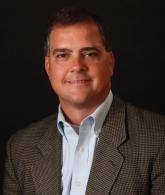Update on strategies to increase Medicare length of stay, overcome RUG reductions
You might appreciate an update on a new strategy that I’ve implemented with clients in response to Medicare cuts—and the response from referral sources and families.
As I mentioned in a previous blog, increasing Medicare length of stay will help your facility increase Medicare census and help you overcome Rehab RUG rate reductions. The national average Medicare length of stay per patient is 35 days. If your facility is averaging fewer than 35 days then you may have a reasonable opportunity to increase length of stay for every Medicare admission you have.
One of the strategies is a program designed to meet the clinical needs of patients with diagnoses including COPD, congestive heart failure, diabetes, urinary tract infections and other infections, wounds and a variety of other diagnoses. The program is specifically targeting patients who would benefit from nursing assessment and treatment to stabilize their medical condition prior to beginning aggressive rehabilitation.
This nursing assessment and treatment period can last from just a few days to two weeks prior to the patient starting rehabilitation, which would run its normal length of stay. This strategy results in patients being billed under a Nursing RUG initially and then transitioning to a Rehab RUG. This strategy increases length of stay and takes advantage of nursing RUGs, which have seen increases by Medicare.
This program is not for every patient. Healthy patients with elective hip or knee replacements need to begin therapy as soon as possible, as do stroke patients who need therapy immediately to maximize their functional outcomes.
Here’s the true kicker to this strategy: Referral sources and families have responded with great enthusiasm to the program. I have participated with client admissions and marketing team members to present this program to hospitalists and case managers. The nursing assessment and treatment period is designed to improve a patient’s health status, which prevents readmissions—and this is a very attractive benefit to hospital staff.
Admissions and marketing team members are encouraged to schedule an appointment with directors of case management and hospitalists to discuss the hospital’s strategies to reduce readmissions and present this program as a solution to the problem. I’m also targeting hospitalists and cardiologists to include in the program’s presentation.
While patients and their families also have responded positively, that response has come with some reservations and concerns that had to be dispelled. What are those concerns? Families and patients want to begin aggressive therapy right away and don’t want to be in a skilled nursing facility any longer than they have to be.
In response to these reservations, I’ve instructed admissions directors to educate families and patients about the risk for going back to the hospital and how the program reduces that risk. Also, educate families and patients about the benefits of beginning rehabilitation (potentially greater improvements in function and independence and increased chance that they will go home) when they are healthy vs. starting therapy when they are sick.
Early results in terms of patient outcomes are encouraging and have show reduced readmissions and improved function and independence for patients. I’m expecting a significant increase in length of stay, which should increase Medicare average daily census.
Luke Fannon is the Founder and Principal at Premier Coaching and Training, Unionville, Penn. PCT provides long-term and healthcare sales and marketing training, admissions and marketing team coaching and other strategic consulting services. For more information, visit www.premiersalesconsulting.com.

Luke Fannon is founder and CEO of Premier Coaching & Training, Unionville, Pa., which provides sales training, marketing team coaching and strategic consulting services to providers in the long-term care industry. For more information, visit www.pctmarketing.com.
Related Articles
Topics: Articles











